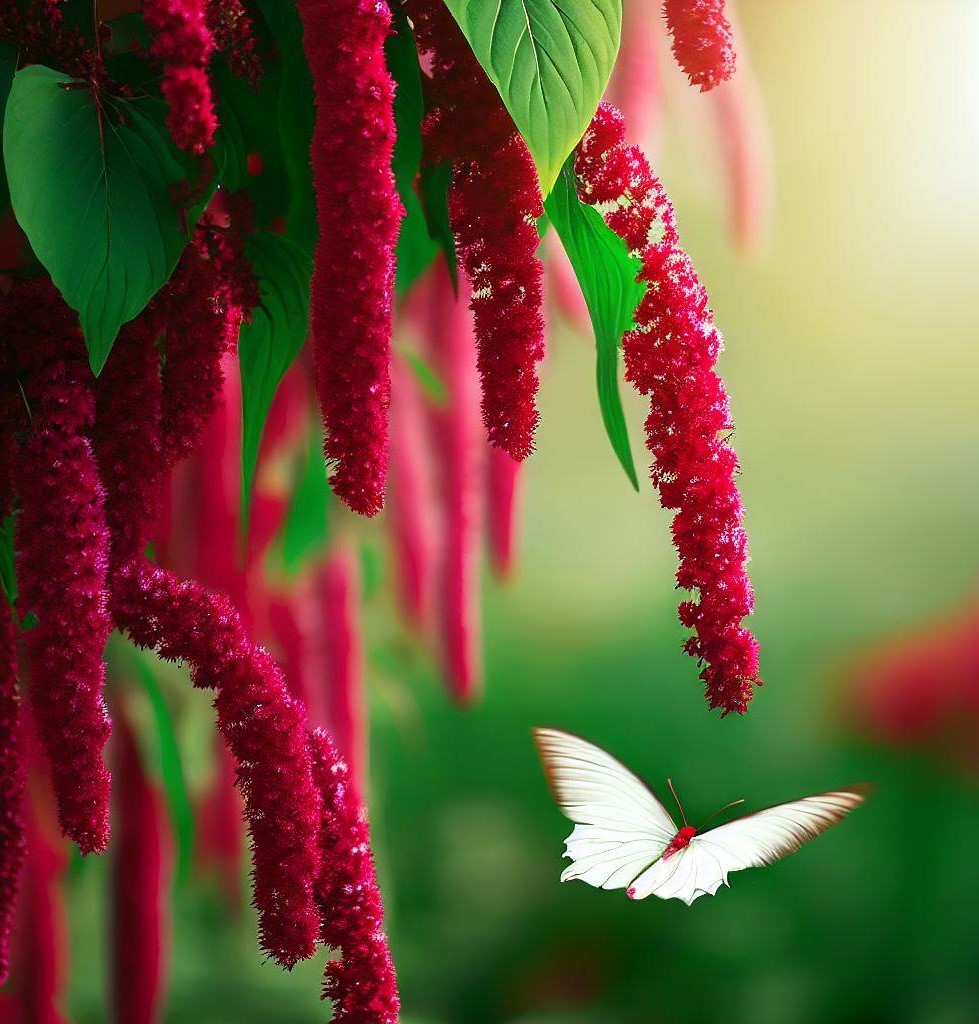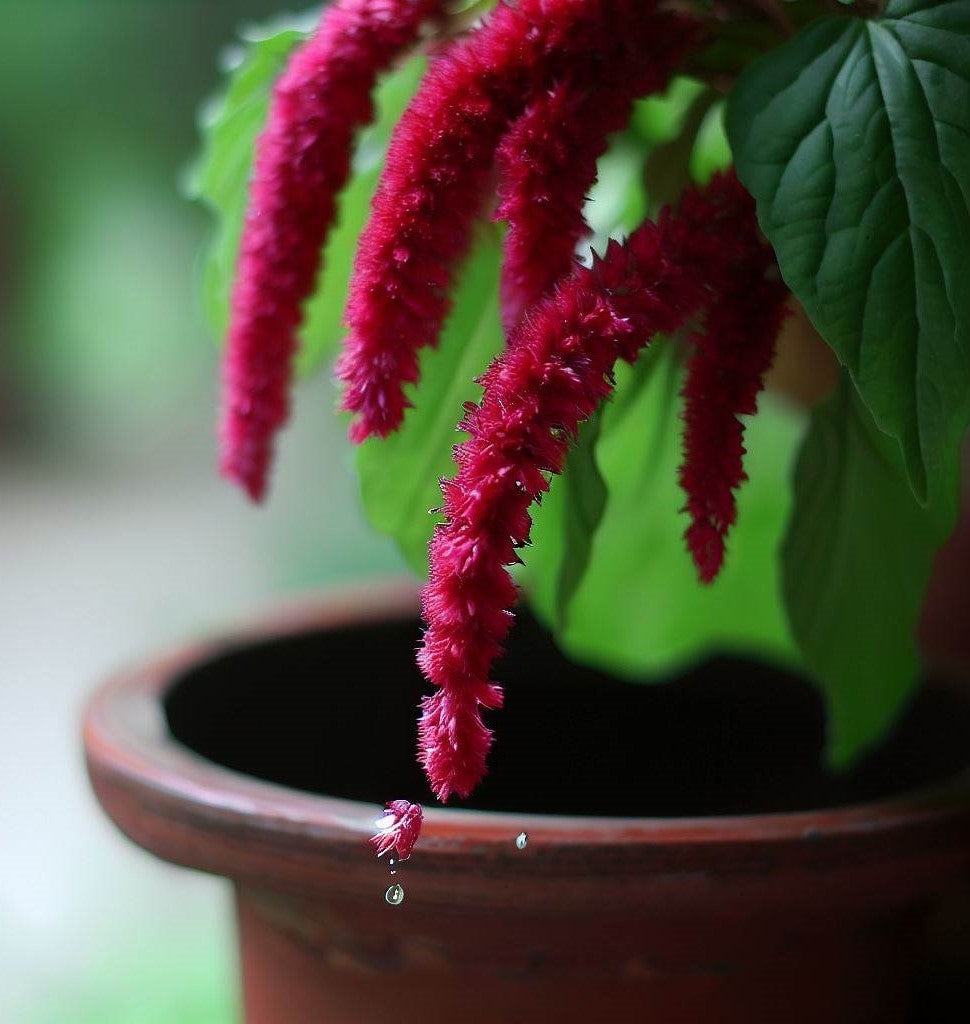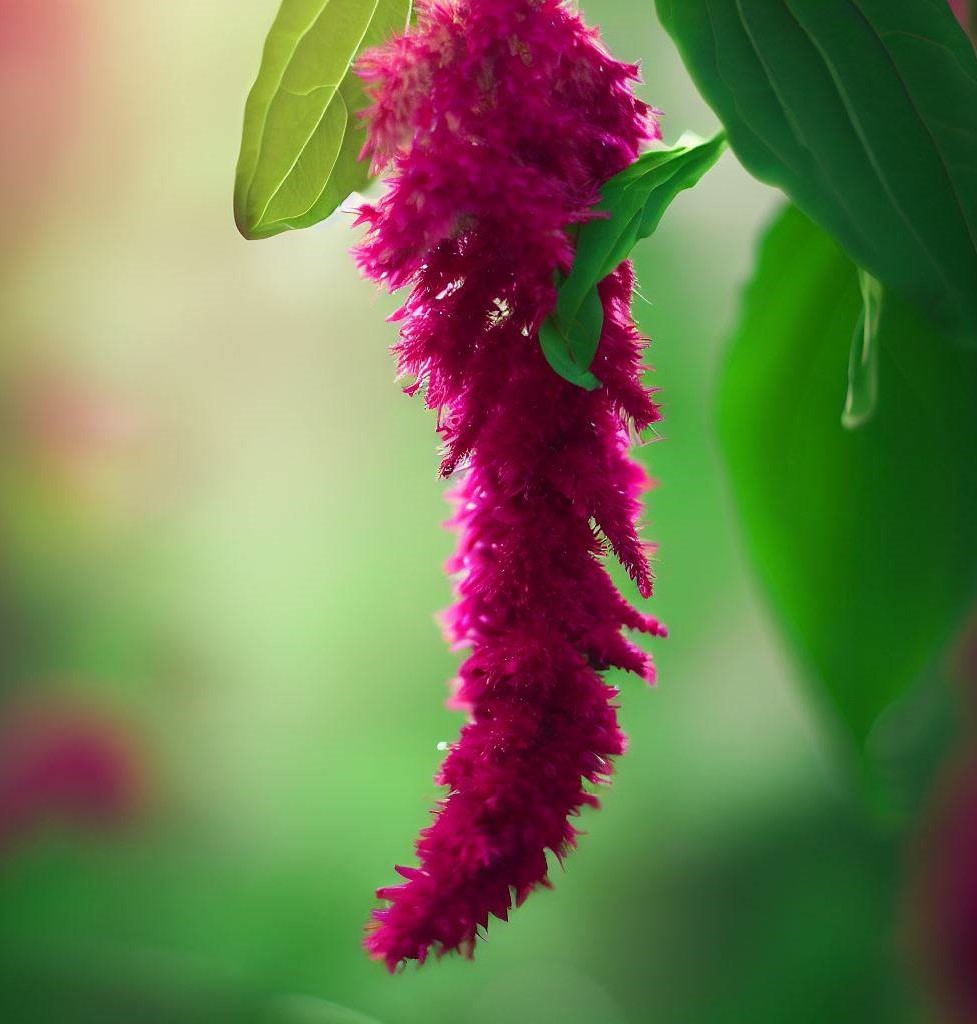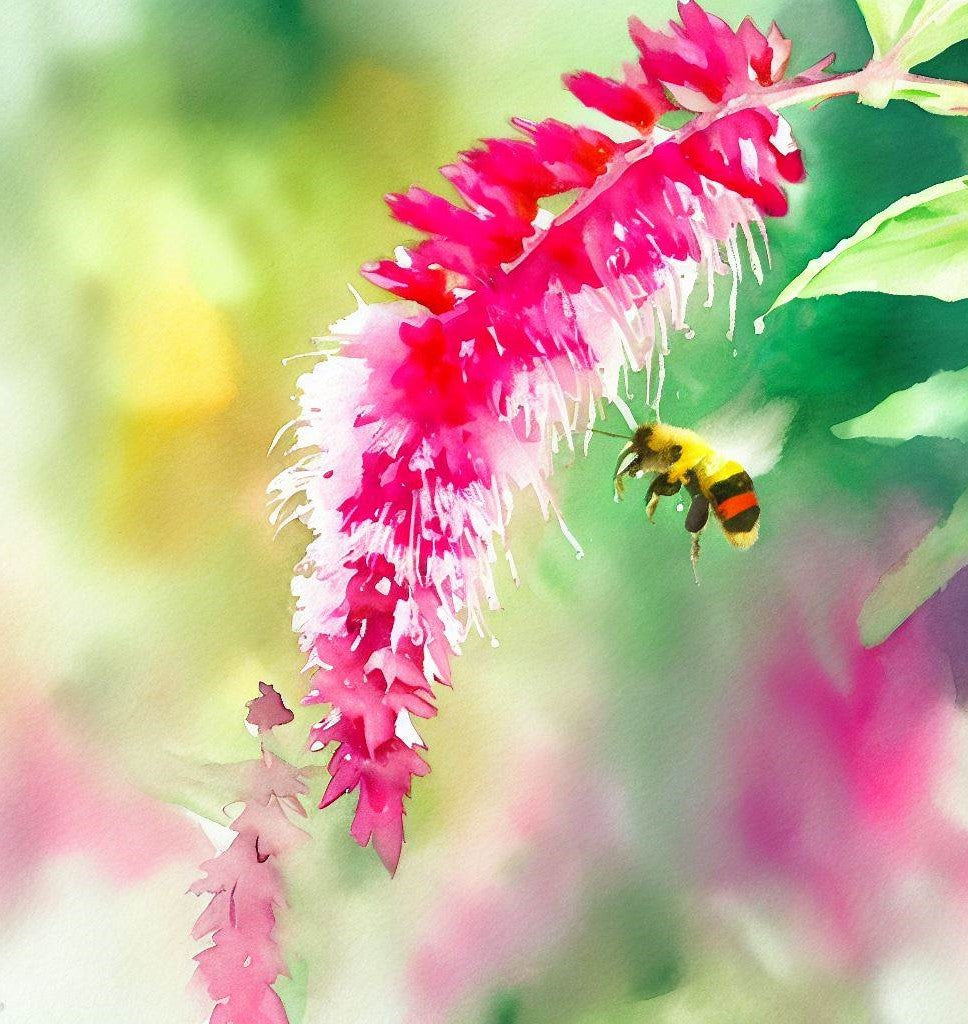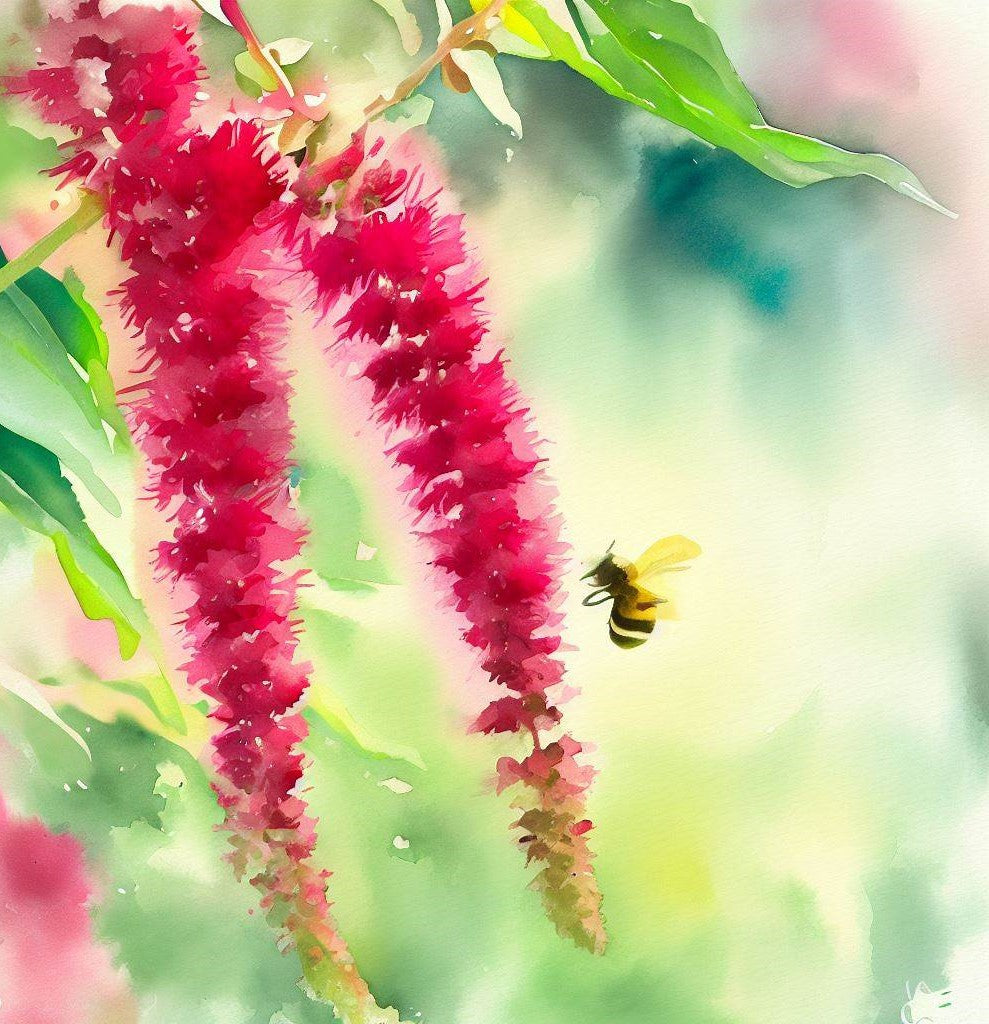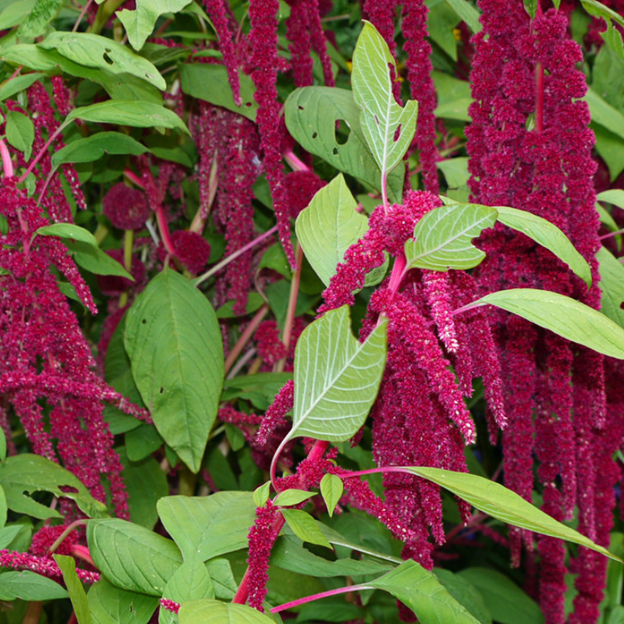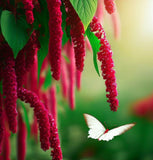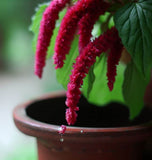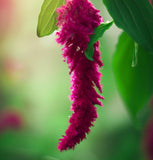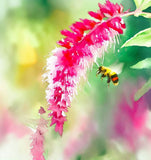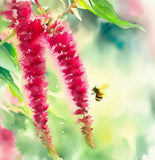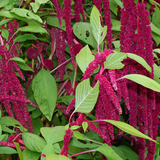AMARANTHUS caudatus (Love Lies Bleeding)
AMARANTHUS caudatus (Love Lies Bleeding) is an annual flowering plant in the amaranth family (Amaranthaceae). It is native to the Andes of South America but has been widely cultivated as an ornamental plant around the world.
Red color of the flowers is due to the abundance of betacyanins. Their combinations with traditional cereal grains in breakfast foods, bread, pastes and snacks make them an energy food. The plant is self-fertile and prefers to grow in well-drained soil. Striking red flowers with long tails show the pleasant view of gardens.
Love Lies Bleeding grows up to 6 feet (180 cm) tall and has an upright stem covered with green, oval to lance-shaped leaves. The plant produces long, drooping panicles of tiny, deep red or purple flowers that resemble tassels. The flowers bloom from mid-summer to early fall and are highly attractive to pollinators, such as bees and butterflies.
Love Lies Bleeding prefers full sun and well-drained soil. It is drought tolerant and can tolerate a wide range of soil conditions. The plant is often used in mixed borders, as a specimen plant, and in container gardens. It is also used in cut flower arrangements and for its edible and nutritious seeds, which have been traditionally used in South American cuisine. Additionally, the plant has been used in traditional medicine to treat a variety of ailments, including wounds, fever, and diarrhea.
| Number of Seeds | Max Coverage Area (Square Ft.) | |
|---|---|---|
| 1OZ | 40,625 | 1,000 |
| 1/4LB | 162,500 | 4,000 |
| 1/2LB | 325,000 | 8,000 |
| 1LB | 650,000 | 16,000 |
| 5LB | 3,250,000 | 80,000 |
Scientific Name: Amaranthus Caudatus
Common Name: Velvet Flower, Love-Lies-Bleeding
Plant Type: Herbaceous
Family: Amaranthaceae
Native Range: Central to South America
Full Growth Height: 6-8 ft
Width in Across: 1-1.5 ft
Exposure: Full Sun
Blooming Season: July to September
Seed Ripening: August to September
Flower: Showy, Elongated
Pollinators: Wind, Self
Flower Color: Deep Red
Tolerate: Drought Tolerant
Water Requirement: Dry to Moist
Soil Type: Sand, Loam, Clay
Zones: 4 to 8
Uses: Having Vitamin A and C, iron and calcium, this plant is frequently used in food.

